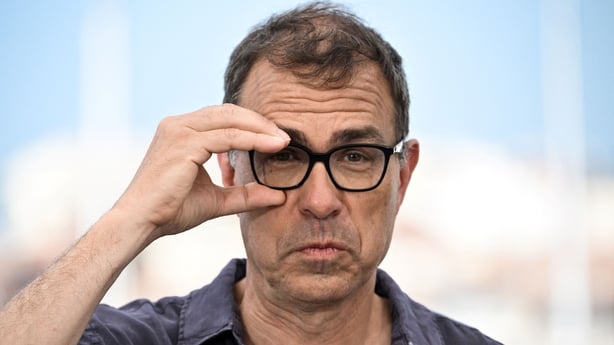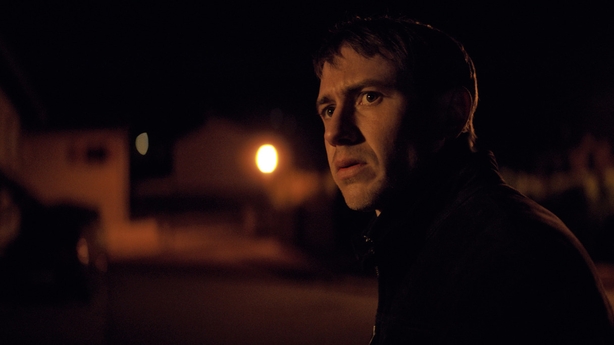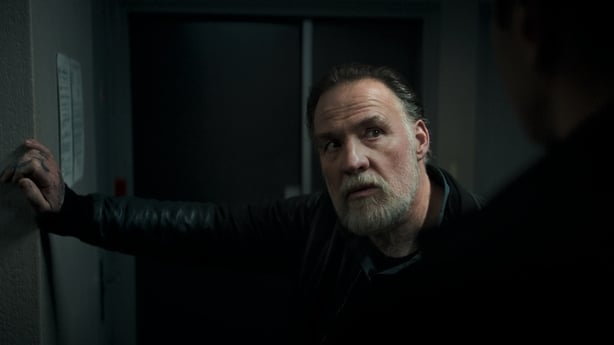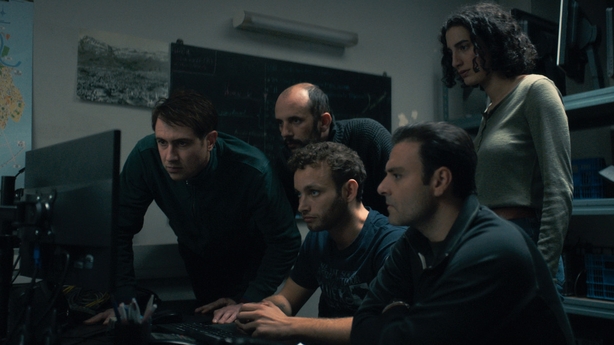A must-see that stops you in your tracks and then rattles around in your mind for days afterwards, The Night of the 12th arrives on our screens after winning Best Film, Best Director, Most Promising Actor, Best Supporting Actor, Best Adapted Screenplay, and Best Sound at the 'French Oscars', the Césars. You won't have to wait for the closing credits to agree that it deserved them all.
In an iron-grip film from minute one, director and co-writer Dominik Moll brings us to the southeastern French city of Grenoble to follow the investigation into the murder of 21-year-old Clara Royer (Lula Cotton-Frapier). As Captain Yohan Vivès (Bastien Bouillon), his partner Marceau (Bouli Lanners), and their fellow detectives conduct the interviews, we witness the psychological toll of the case and also confront the questions it asks of them - and us.

Below, Dominik Moll discusses the making of The Night of the 12th and the response to it in France.
Harry Guerin: Is there anything that has come to light for you now that you have a bit of distance from making The Night of the 12th that wasn't apparent at the time?
Dominik Moll: Not in the sense that once the film was completed I suddenly realised things that I hadn't realised before, but in the process of writing it, of making it - yes. All the questions that are in the film - about male violence, about how those investigators react to that, the journey they undertake, how they evolve - were things that by writing the film we explored at the same time. It's almost as if the questions that are being asked in the film are questions that Gilles (Marchand) my co-writer and I - because we're both men - have asked ourselves also during the writing process. I think for us it was a journey in the same sense as it is a journey for the character of Yohan in the film.

You spent time with police officers in Grenoble when you were preparing for The Night of the 12th. What was the big eye-opener for you in seeing how they work that you didn't realise or that the public wouldn't realise?
The first eye-opener was really the book [on which the film is based]. The book (18.3 - Une Année à la PJ (18.3 - A Year with the Crime Squad)) is a non-fiction book and Pauline Guéna who has written it spent one year with the police - I mean really day in, day out. What I found fascinating is all the police work that is mostly not being shown in fiction and series - the importance of all the procedural work and that they spend more than half of the time typing reports and rewriting reports and all that. And also, the way that it affects them, that their work gets into them.
I think when I was with the crime squad myself, even if it was only for a week, the important things I saw then were, for one, the importance of the group - they work in groups of six to eight people - and how that group is like their second family or sometimes even like their first family. And also, the difficulty that they have to confide to each other, that most of that communication is jokes and stuff like that. [It's] As if they didn't want to admit that joke was really hard and that it was getting into them, and so they kind of 'eat' everything in. Of course, sometimes it leads to depression, suicide or blowing a fuse like the character of Marceau does in the film. It was really important to be able to witness all that.

You've had great success with The Night of the 12th in France. What has surprised you about the response to the film in France?
As a filmmaker, of course you always hope that the audience is going to come and see your film, but you never know. I knew it was not an easy subject, we had no well-known actors. I thought, 'Maybe, ok, we're going to have some good reviews and then some people are going to see it'. [But] When we saw that the film was there to stay and that it stayed [in cinemas] over a long period and that people continued going to see it and the word of mouth was really working...
What I was particularly pleased with was that we could also see that the public was getting younger and younger. At the beginning, it was more people like 40, 50, 60, and then after a while it was younger and the audience was getting younger and younger. That was really satisfying. As a filmmaker, especially if you do more arthouse films, you're always a bit wary that the film might only be seen by 60-year-old cinephiles who will die out in 20 years! (laughs) To see that there's an interest from a younger audience is incredibly rewarding.

Also, we had a lot of responses and reactions and emails from viewers who had seen the film - and mostly from women. That was also very strong because some of them said that they were really grateful to us being men to have tackled those subjects in such a way and that the film had given them strength. When you read that or hear that, that's actually much more important than an award. But, of course, awards are nice as well!
What I hope for is that when people see the film that the film stays with them and that the questions that are being asked in the film also stay with them. I mean, when I see a film I like of course to be entertained - because it is entertainment - but to [also] take something from it and not to forget it after five minutes. This is what I tried to do. When I hear that people discuss the film or talk about it or are moved by it, that's the most important thing, really.
The Night of the 12th is in cinemas now.
